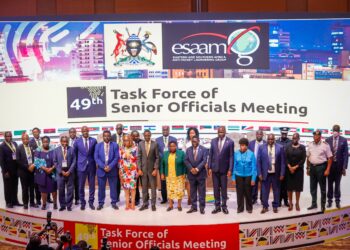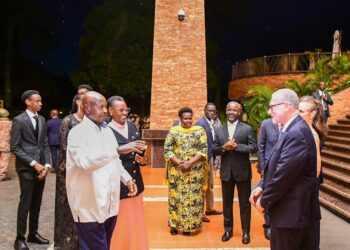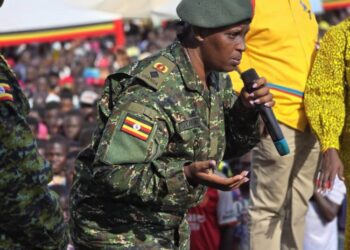Efforts by President Yoweri Museveni to reassure Ugandans of improved infrastructure have been undermined by a controversial contract award for the 105-kilometer Kihura-Bwizi-Rwamwanja-Mpara road project in Kyenjojo District. Allegations of favoritism and procedural violations by the Uganda National Roads Authority (UNRA), Public Procurement and Disposal of Public Assets Authority (PPDA), and Solicitor General are at the center of the scandal.
The Controversy
The road project, valued at $150 million (approximately UGX 568 billion), has allegedly been awarded to Arab Contractors, a company ranked third in the evaluation process. The lowest bidders—Lankaran Yol Tinkinti OJSC in a joint venture with UCA Insaat (UGX 448.8 billion) and Dott Services (UGX 503 billion)—were disqualified under questionable circumstances.
Arab Contractors’ bid was UGX 57 billion higher than the lowest bidder, prompting public outcry over the integrity of the procurement process. Critics argue that this discrepancy raises serious questions about how contracts are evaluated and awarded.
Red Flags and Anomalies
Arab Contractors reportedly failed to meet key requirements in the bid evaluation criteria, including:
- Lack of notarized powers of attorney.
- Failure to submit certified audited financial statements for 2022.
- Absence of evidence of key equipment required for the project.
- Submission of incomplete financial documents, providing only an annual financial position report instead of complete audited records.
Adding to the controversy, Arab Contractors’ bid matched UNRA’s internal project cost estimate down to the decimal, raising suspicions of insider interference.
Whistleblower Reports and PPDA Investigations
The saga began when six whistleblowers raised concerns about irregularities in the bidding process, excluding Arab Contractors from their complaints. This fueled speculation that the process was manipulated to favor one bidder.
Concerns of Bias and Inaction
Despite formal complaints from disqualified bidders, no significant action was taken. Lankaran Yol Tinkinti OJSC argued that their bid security, initially disqualified on technical grounds, was valid and compliant. They cited extraordinary circumstances, including a recent earthquake in Turkey, as reasons for minor delays, which did not affect their overall ability to meet requirements.
Conversely, Arab Contractors, despite clear non-compliance with key criteria, received preferential treatment.
Allegations of Corruption
Allegations have emerged that an unnamed official may have had a 5% stake in the deal, further tainting the credibility of the process. Critics claim that the president’s name was invoked to justify irregularities, adding another layer of controversy.
Security agencies are reportedly investigating the procurement to ensure value for money and adherence to proper procedures.
Implications for Kyenjojo District
This controversy risks delaying construction of the vital road, which is critical for improving connectivity and boosting economic activity in the Toro region. The road was a key promise to voters in Kyenjojo, and the delays may erode public trust in government institutions.
The ensuing legal battles by aggrieved bidders are expected to further stall progress, putting President Museveni’s infrastructure vision in jeopardy.
A Broader Crisis in Public Procurement
This scandal highlights systemic issues in Uganda’s public procurement system. With UNRA nearing the end of its mandate before transitioning back to its parent ministry, its handling of this project casts doubt on the agency’s governance and accountability.
The Road Ahead
As investigations continue, the people of Kyenjojo await clarity and action. The controversy underscores the urgent need for procurement reforms to restore public confidence, ensure fairness, and prevent similar scandals in the future.
For now, the road to progress remains blocked by allegations of corruption and bureaucratic failures, threatening to overshadow the government’s broader infrastructure goals.
Do you have a story in your community or an opinion to share with us: Email us at editorial@watchdoguganda.com













